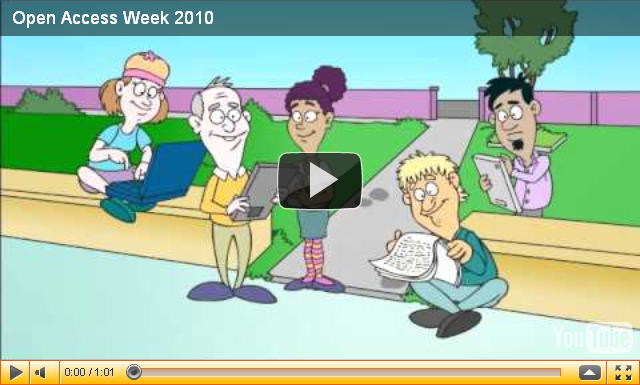Open Access Week: The Right to Research for Students
 The Right to Research Coalition asserts that access to research is a student right. They’re working to redefine the current system of scholarly communication — in which access to published research is limited to those at institutions that can afford to subscribe to expensive journals and databases.
The Right to Research Coalition asserts that access to research is a student right. They’re working to redefine the current system of scholarly communication — in which access to published research is limited to those at institutions that can afford to subscribe to expensive journals and databases.
The huge expense of traditional subscription-based information is another issue driving the open access movement — why should that information be limited to those who can afford it? And it’s not cheap, either — check out the introductory animation on RRC’s homepage. You might be surprised that a subscription to ONE journal can be equal to or greater than a year’s worth of tuition at Northeastern! (See Sticker Shock: The Price of Library Resources for some price comparisons between journal subscriptions and big-ticket consumer items.)
To celebrate Open Access Week, the Right to Research Coalition is presenting a webcast tonight (Thursday, 10/21) at 7:00 pm Eastern time, in conjunction with UC Berkeley. You can find out more about it here: http://www.righttoresearch.org/blog/open-access-week-2010.shtml.



